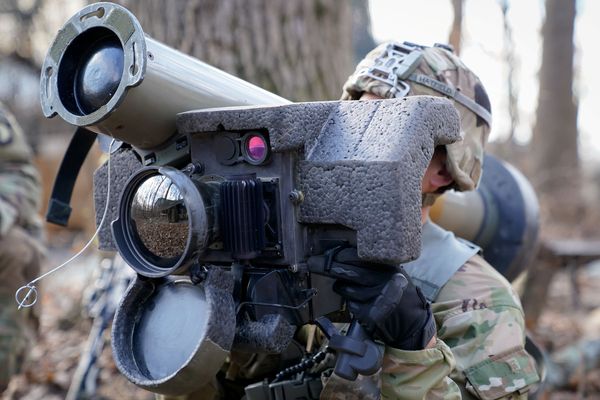
Spain has announced that, from next week, unvaccinated children aged 12-17 will be allowed in with a negative PCR test result instead of proof of vaccination.
“The government updates the health requirements for entry to Spain for the group between 12 and 17 years of age from non-EU countries,” tweeted the Ministry of Industry, Trade and Tourism on Friday.
“Starting at 00:00h on Monday 14 [this age group] may submit negative NAAT test (RT-PCR or similar) [taken within the] 72h before,” it continued.
The news comes too late for the UK’s half-term holidays - with a week off starting from Monday, many families have already booked holidays elsewhere or will be setting off over the weekend, before the rule change kicks in.
Meanwhile, as of 1 February, vaccinated adult holidaymakers planning to travel to Spain need to have had their jabs within a strict timeframe.
Following the European Union Commission’s recommendations, authorities in Spain announced that only vaccination records that show a final dose administered within the previous 270 days will be recognised.
It means that people who received their second jab more than nine months ago will need a booster shot in order to be permitted entry into the country.
However, Spain has also eased Covid rules on the ground this month, dropping a strict rule on mask-wearing outdoors from 9 February.
Spain and its islands have long been a favourite destination for Britons, with more than 18 million holidaymakers visiting this Mediterranean hotspot annually in pre-pandemic years. However, coronavirus and the subsequent travel bans and restrictions has decimated the country’s tourism industry.
So can you book a Spanish getaway – and what are the current rules on travel? Here’s everything you need to know.
Are British holidaymakers allowed to travel to Spain?

Yes - but only if they’re fully vaccinated, or aged under 12 (11s and under are exempt from the vaccination rule).
From Monday 14 February, this changes to allow children aged 12-17 to enter with a negative PCR test result.
Since 1 December, unvaccinated Britons have been banned from entering Spain, a measure announced in late November.
Previously, anyone with a negative PCR test result from within the previous 72 hours could enter Spain for work or leisure purposes.
But travellers from the UK are now required to show proof of a full course of a Covid-19 vaccine, with the second dose administered at least 14 days before travel.
Non-resident travellers from the UK must be double-jabbed with a vaccine authorised by the European Medicines Agency or the World Health Organisation in order to gain entry.
A valid, in-date NHS Covid Pass will suffice as proof of vaccination.
As stated above, only proof of the second dose having been administered within the previous 270 days will be recognised for entry.
This means that people who received their final jab more than nine months ago will need to get a booster shot to be counted as “fully” vaccinated to gain admittance to Spain.
All passengers must also complete and sign an online Health Control Form no more than 48 hours prior to travel, declaring any known history of exposure to Covid-19 and giving contact details.
Anyone who has not completed this form electronically via the Spain Travel Health website or app may submit it in paper format prior to boarding.
Certificates of recovery - a medical document certifying that you have recovered from Covid-19 within the six months prior to travel - are not currently accepted for arrivals from the UK.
Depending on which region you’re travelling to, you may need to show proof of vaccination to enter accommodation or local venues while in the country.
Are unvaccinated children allowed into Spain?

Until 14 February, only vaccinated children aged over 12 willl be allowed into Spain. Unvaccinated children aged 11 and under are exempt from the rule.
From 00.00 on Monday, the rules change: children aged between 12 and 17 will be able to present a negative PCR test result taken within the 72 hours before arrival, instead of proof of vaccination. Those aged 18 and over must still be fully vaccinated to enter Spain.
Local tourism authorities in Spain had lobbied the Spanish government to lift the strict vaccinated-only rule for children and teens since its implementation, with many relying on British tourism for spring and summer.
“Vaccination is a key instrument to combat the COVID-19 pandemic, hence to promote its use and, likewise, link it to facilitate mobility international, it was included as one of the categories exempt from the restrictions contemplated in this Order. However, in many countries there are difficulties or including the impossibility of obtaining the vaccine for use in the population of less of 18 years. Consequently, it is considered appropriate to establish conditions specific to these people,” reads a statement from the Ministry of Industry, Trade and Tourism.
What are the UK rules when I return from Spain?
From 4am on 11 February, fully vaccinated travellers have no need to take a test on arrival to the UK. Unvaccinated people must present a negative test before departure and book a so-called “day two” PCR to be taken on the day they return or either of the following two days, and use the reference number to complete a passenger locator form (PLF). All arrivals must fill in a PLF ahead of travel, regardless of vaccination status.

What restrictions are in place in Spain?
Restrictions vary from region to region in Spain.
The strict outdoor mask mandate has now been dropped.
However, at present, everyone over the age of six must wear a face mask in enclosed public spaces, on public transport and in crowded outdoor areas where it is not possible to socially distance.
Social distancing measures of 1.5m are also in place throughout the country.
Many sights and museums have limited capacity or now require visitors to book a time slot online in advance.
Some regions have their own restrictions, so you should check the rules for the region you are visiting before you travel - the Spanish tourist board’s Travel Safe website has an interactive map you can consult for regional rules.







